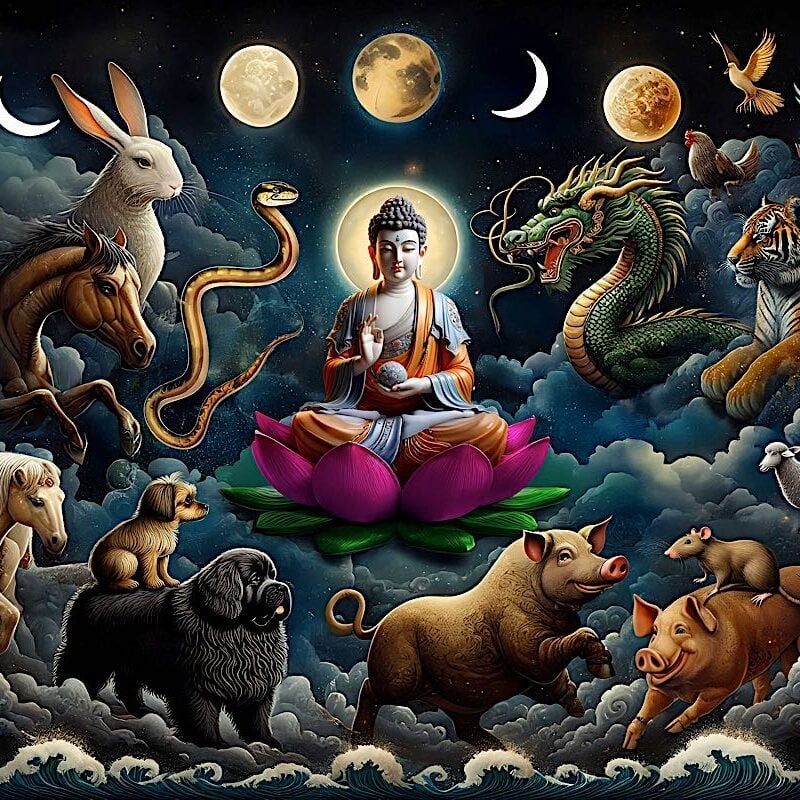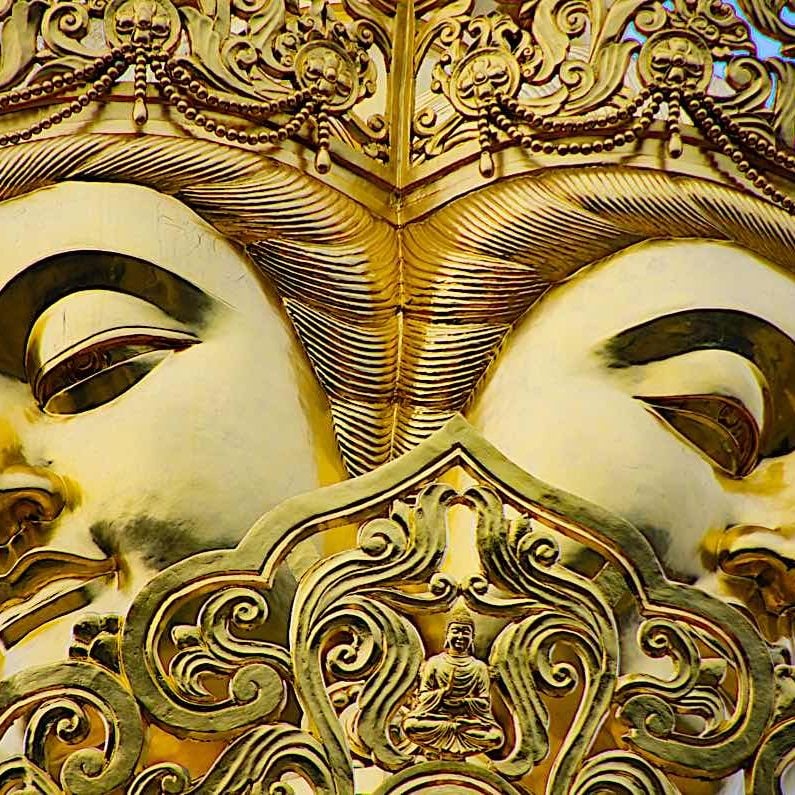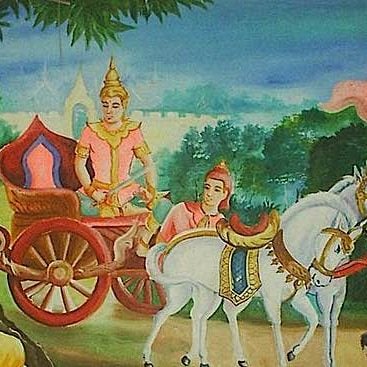Reciting the Sutra Remembering the Three Jewels on Buddha Days: Purifying Karma, Removing Obstacles, “Skies of Merit”

One of the treasured merit-accumulating practices in Mahayana Buddhism is the recitation of the glorious Sutra Remembering the Three Jewels. In Sanskrit this is Ārya-ratnatraya-anusmṛti-sūtra.
According to the teachings, reciting this Sutra only one time, purifies negative karma, illuminates the mind, cultivates concentration, propagates the Dharma, protects the Dharma, delivers the deceased, and prays for blessings. Accumulations of multiple recitations, when dedicated for the benefit of all sentient beings, has “skies of merit.”

Reciting on “Buddha Days” Multiplies Merit
This short Sutra, when recited on one of the eighteen Sacred Buddha Days, has “Karmic results multiplied one hundred million times.” according to Lama Zopa Rinpoche, citing the Vinaya Text Treasure of Quotations and Logic.
Recite the short. but important. Sutra Remembering the Three Jewels every day, or at least on Sacred Buddha Days – -18 each year if you could the 15 Days of Miracles. Recite it as often as possible on the eighteen Sacred Buddha Days as merit is multipled millions of times.
Please dedicate the merit of your Sutra recitation to the benefit of all sentient beings and to other virtuous causes such as world peace.

Sutra Remembering the Three Jewels
Ārya-ratnatraya-anusmṛti-sūtra
Homage to the Omniscient One! Purified and consummate, Victorious, Virtuous and Transcendent, thus-gone, foe-destroying, entirely perfect Buddha, full of wisdom, the blissfully proceeding, the knower of the world, charioteer and subduer of beings, the unsurpassable, and teacher of gods and men: such is Buddha, Victorious, Virtuous and Transcendent.
He who is thus-gone exemplifies the merit which is his cause; in him no root of virtue is ever worn away; through his manifold patience he is exceedingly beautiful. He is the treasure ground of merit; adorned with the tokens of enlightenment, he is graced with the flowers of the marks of Buddhahood.
All he does is seasonable and opportune and nothing inharmonious mars the sight of him. True joy indeed he gives to those who open up their hearts to him in faith. Through the brilliance of his wisdom he is unconfounded, and against his power there is no victory.
He is the teacher of all living beings, the father of all bodhisattvas, the king of all superior ones; he is the guide of those who journey to the city of Beyond Affliction.
His wisdom is unbounded, his assurance is beyond imagining. His speech is altogether pure, well tuned and sweet to hear. Gazing on him, one is never sated; his body is beyond compare.
By the realm of desire he is unstained, and by the realm of form, is wholly uncontaminated; he is not mingled with the formless. He is altogether free from misery, and from the aggregates he is utterly and altogether free. The elements have no hold on him; he has mastery of the sense powers. All bonds he has completely severed and from all pain he is perfectly and totally released.
No craving does he have; he has passed beyond the stream. Perfect is his wisdom; and in the wisdom of the Buddhas past, present and to come, he has made his dwelling.
In nirvāṇa where all suffering is transcended, he does not abide; his abode is in the very summit of perfection, residing in that place where he perceives all living beings. Such are the sublime qualities that are the greatness of the Buddha, Victorious, Virtuous and Transcendent.
The sacred Doctrine is righteous in the outset, righteous in the middle, righteous in the end; in its meaning excellent and in its words and syllables likewise. It is integral and unalloyed; it is all-sufficing, altogether pure and purifying.
Well spoken is this Dharma by the Victorious, Virtuous and Transcendent. It is a perfect way of seeing and is devoid of ailment; it is perennial and leads us onward. To see this Dharma, is to fulfill one’s purpose; the wise will see in it their self-cognizing wisdom.
The Dharma spoken by the Victorious, Virtuous and Transcendent is shown to be well-tempered to the instruction and the needs of all. It drives us from saṁsāra and causes us to go to perfect Buddhahood. It is free from contradiction, and in it, all is summarised. It is totally to be relied upon; it is a cutting of the root.
The Saṅgha of the Mahāyāna comprises those who have well entered, wisely entered, entered with straightforwardness and aptitude. Right it is to join our hands before them, and right to make prostration.
They are the glorious field of merit. They are the perfect recipients of gifts; they are the object of offering; everywhere and always they are the worthy object of all offering.
Thus ends the Sublime Sūtra of Remembering the Three Jewels.
We dedicate the merit of the reading of the Sutra of Remembering the Three Jewels to the benefit of all sentient beings.

More articles by this author

Offering Light for Saga Dawa Duchen and the Month of Merits: Buddha’s Birthday, Enlightenment and Paranirvana 100 Million Merit Day

Who is my Enlightened Life Protector Based on Tibetan Animal Sign Zodiac in Buddhism? According to Mewa, Mahayana tradition and Kalachakra-based astrology (with Mantra Videos!)

Samantabhadra’s The King of Prayers is the ultimate Buddhist practice how-to and itself a complete practice

Bodhisattva Vow and the Bonding Aspiration of the 5 Buddha Families: Reversing Dharma Downfalls, Purifying Karma, and Restoring Commitments
Search
Latest Features
Please support the "Spread the Dharma" mission as one of our heroic Dharma Supporting Members, or with a one-time donation.
Please Help Support the “Spread the Dharma” Mission!

Be a part of the noble mission as a supporting member or a patron, or a volunteer contributor of content.
The power of Dharma to help sentient beings, in part, lies in ensuring access to Buddha’s precious Dharma — the mission of Buddha Weekly. We can’t do it without you!
A non-profit association since 2007, Buddha Weekly published many feature articles, videos, and, podcasts. Please consider supporting the mission to preserve and “Spread the Dharma." Your support as either a patron or a supporting member helps defray the high costs of producing quality Dharma content. Thank you! Learn more here, or become one of our super karma heroes on Patreon.
Lee Kane
Author | Buddha Weekly
Lee Kane is the editor of Buddha Weekly, since 2007. His main focuses as a writer are mindfulness techniques, meditation, Dharma and Sutra commentaries, Buddhist practices, international perspectives and traditions, Vajrayana, Mahayana, Zen. He also covers various events.
Lee also contributes as a writer to various other online magazines and blogs.














